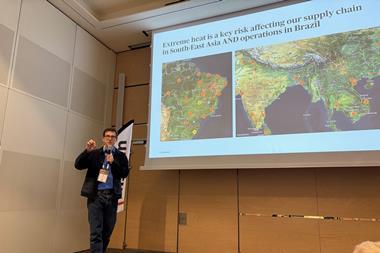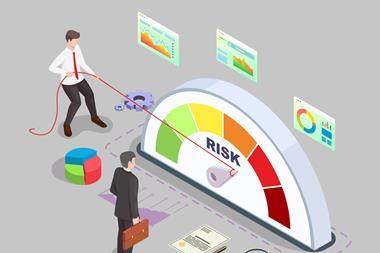Daimler Insurance Services managing director highlights the key challenges facing insurers today

Globalisation coupled with a risk landscape that is constantly changing means devising robust insurance solutions has become a challenge for insurers, particularly where natural catastrophes are concerned.
Daimler Insurance Services corporate insurance managing director Ingo Telschow highlights the key issues.
What are the biggest challenges for insurers?
I have the impression that well-known ‘standard risks’ are very well insured. In my view, the unknown risks – the ones that are taking place outside the conventional scenarios – are the biggest challenge. The eruption of the Eyjafjallajökull volcano is a good example: it hindered air traffic for days. You can never prepare perfectly for the unexpected, but you can keep a close eye on changes in the environment. That way, when the unforeseen occurs, you are as ready as possible. At the moment, risk management is beginning to explore this new area.
Are these risks insurable or non-insurable?
New risks require that the insurance industry come up with new answers. To put it in automotive industry terms: when we are talking about insuring new risk scenarios, there are a few show cars that can be put on display. But very few products are ready for series production; hardly any have achieved a market breakthrough. This is mainly attributable to one thing: in the insurance business, it is very difficult to protect innovation. That’s why insurance companies hesitate to invest in innovation.
How would you advise risk managers to deal with these risks? What are the most important things that they can do?
There is no universal solution, but establishing sound risk awareness across the company is probably the most important thing. These days, all managers should also see themselves as risk managers, and they should keep an eye on the scenarios that are relevant for their areas of responsibility. As a risk officer, I must see to it that people across the organisation are adequately sensitised. The cooperation between insurance providers and policyholders is another important point. Here, closer development partnerships would certainly be helpful – especially when it comes to finding solutions to new challenges.
What lessons has your experience taught you about risk management?
Ultimately, it isn’t only about robust mathematical models: you also need a healthy dose of common sense. I would warn people against relying too heavily on models.





















No comments yet